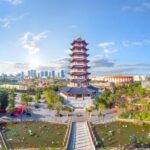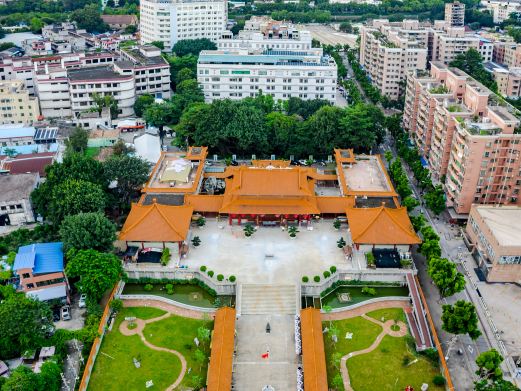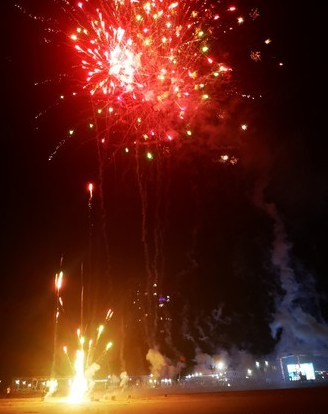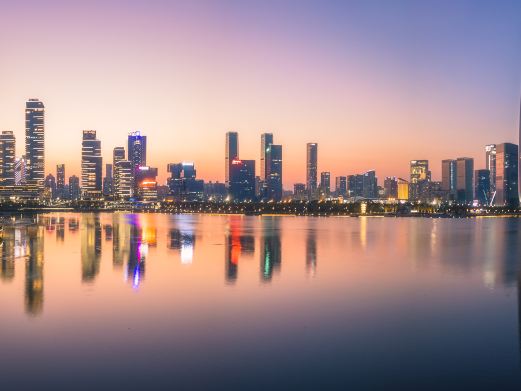Yuanmiao Ancient Taoist Temple is located on the picturesque north bank of West Lake in Huizhou, and is a renowned ancient Taoist temple in the city. In 1993, the Huizhou Taoist Association was established, with Yuanmiao Temple as its headquarters. Initially constructed in the Tang Dynasty during the seventh year of the Tianbao era (748 AD), it was first named Chaoyuan Temple and later renamed Kaiyuan Temple.
In the ninth year of the Song Dynasty’s Xiangxifu era (1016 AD), it was granted the title Tianqing Temple, and during the Yuan Dynasty, it was renamed Xuanmiao Temple to avoid the taboo of the dynasty’s name. During the Jiajing reign of the Ming Dynasty, it was additionally named Yuanmiao Temple, which it retains to this day. Since its inception, Yuanmiao Temple has experienced cycles of prosperity and decline, with multiple instances of destruction and reconstruction. In 1985, the construction of the Jade Emperor and Sanqing Halls began, with donations from Taoist followers both domestically and internationally. The foundation was laid in 1987, and the temple was completed and opened to the public in 1989. In 1990, Yuanmiao Temple was designated as a cultural heritage site under the protection of Huizhou City. The reconstructed temple now includes the Jade Emperor Hall and Sanqing Hall in two separate sections, with the Jade Emperor Hall in the front and the Sanqing Hall at the back. Ancillary buildings include the incense-burning pavilion, the front steps of the temple, and the main entrance stairs. The front steps are divided into two paths, with the Tai Chi diagram and the twelve zodiac signs carved in the middle, aligning with the main structure along a central axis. Other restored buildings in Yuanmiao Temple include the Hall of the Sixty Jiazi, the Hall of the Three Primes, the Hall of the Northern Emperor, the Hall of Guanyin, the Hall of Bao Gong, and the Hall of Guan Yu. Visitors to Yuanmiao Temple can also burn incense, draw divination sticks, and have them interpreted. The temple is open to the public all year round, with full-day access.Yuanmiao Ancient Taoist Temple
Yuanmiao Ancient Taoist Temple is located on the picturesque north bank of West Lake in Huizhou, and[...]









